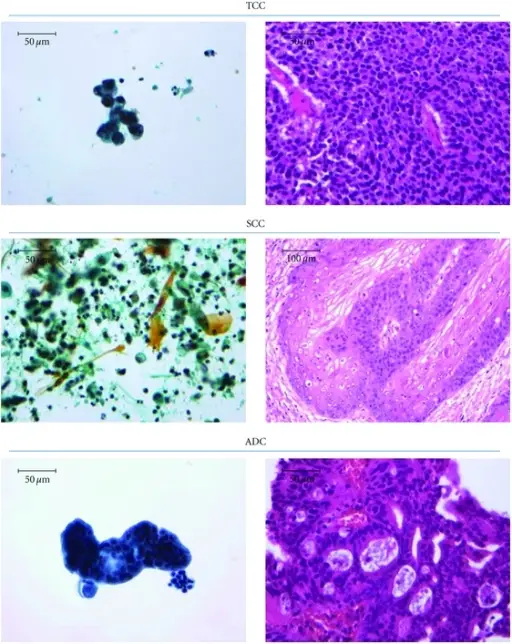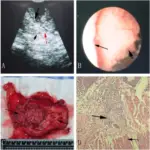Transitional tumors of the bladder, also called urothelial carcinoma, are a type of cancer that typically occurs in the urinary system. Transitional cell carcinomas arise from the transitional epithelium, a tissue lining the inner surface of these hollow organs. When the term “urothelial” is used, it specifically refers to carcinoma of the urothelium, meaning a transitional cell carcinoma of the urinary system.
What is the Pathology of Transitional Tumors of the Bladder?
The pathology of transitional tumors of the bladder is:
-Etiology: The cause of transitional tumors is the environmental carcinogenic influences.
-Genes involved: RAS.
-Pathogenesis: The sequence of events that lead to transitional tumors of the bladder is a polyclonal field change defect with frequent recurrences due to a heightened potential for malignant transformation.
-Morphology: The morphology associated with transitional tumors of the bladder shows subtle bladder wall thickening.
-Histology: The histology associated with transitional tumors of the bladder shows a nested pattern of invasion.
How do Transitional Tumors of the Bladder Present?
Patients with transitional tumors of the bladder typically affect older males. The symptoms, features, and clinical findings associated with transitional tumors of the bladder include painless gross hematuria. Patients with advanced disease can present with pelvic or bony pain, lower-extremity edema from iliac vessel compression, or flank pain from ureteral obstruction.
How are Transitional Tumors of the Bladder Diagnosed?
Transitional tumors of the bladder are diagnosed by CT, conventional urography, and MRI.
How are Transitional Tumors of the Bladder Treated?
Transitional tumors are treated with transurethral resection with or without intravesical therapy.
What is the Prognosis of Transitional Tumors of the Bladder?
The prognosis of transitional tumors is excelled in the case of superficial tumors.



